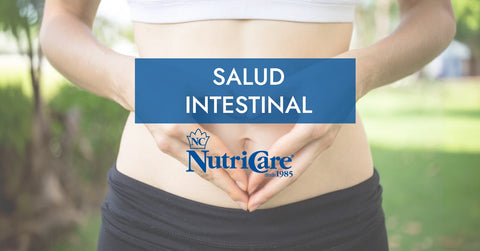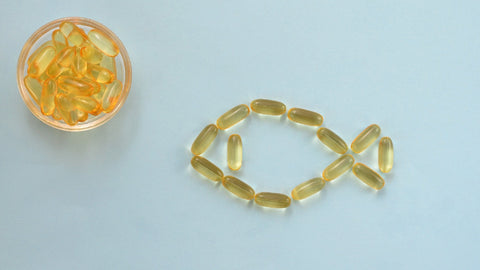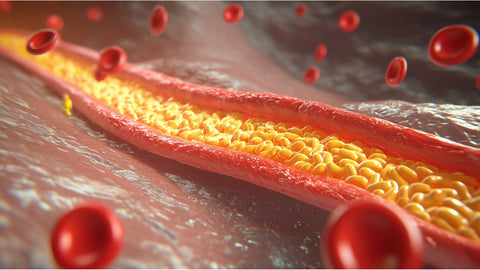Intestinal health , also called digestive health , is related to the functioning of all the organs involved in the digestive system and is of vital importance for overall health and well-being.
The term intestinal health refers to everything related to the gastrointestinal tract, which begins in the mouth and ends in the rectum, also encompassing the esophagus, stomach, small intestine and large intestine.
Good intestinal health can prevent the development of digestive diseases such as irritable bowel syndrome, gastroenteritis or diverticular diseases.
The intestine is home to thousands of bacteria that are beneficial to health, forming the so-called intestinal microbiota or also wrongly called intestinal flora. These bacteria or microorganisms perform metabolic, physiological and immune functions in the human body and, at the same time, can be influenced by factors such as diet , stress or aging.

Gut health plays a key role in overall well-being.
Taking care of the intestinal microbiota and maintaining good digestive health will help the body absorb nutrients more effectively, while facilitating digestion and supporting the proper functioning of the immune system, in addition to having a favorable influence on emotional health.
How to improve intestinal health
Working on good digestive health is one of the most effective methods to improve the overall health of the body and at the same time the quality of life.
The best way to take care of intestinal health is by following proper eating habits and a healthy lifestyle, which will help build a diverse intestinal microbiota, which will be the basis for having good intestinal health.

A balanced diet is key to maintaining good intestinal health.
However, what are the steps to follow to maintain adequate digestive health?
Maintain a balanced diet , rich in fruits, vegetables and fiber, and keep your intake of foods high in saturated fats, trans fats and sugars low. Remember that many fruits, such as berries , are a great source of antioxidants , which are also beneficial for the digestive system as well as the urinary system.
To help you, at Nutricare we design your personalized nutritional regimen, based on your bio-anthropometric needs, characteristics, tastes, lifestyles and supervised by the Medical Team. It combines Nutricare meals, nutritionally complete foods, with conventional food and you have regular follow-ups by an Advisor, a nutritional coach who will accompany you, tutor you, support you and offer solutions.
Avoid fad diets . As we told you before, not everything that glitters is gold when it comes to diets, and they can cause intestinal problems.
Drink at least 2 litres of water a day . We have often talked about the benefits of drinking the necessary amount of water a day. In addition to avoiding problems related to dehydration, drinking two litres of water a day facilitates intestinal transit and prevents constipation.
Consume probiotics daily . Probiotics help the body maintain or improve the good bacteria found in the body, which can protect the intestinal microbiota, facilitating digestion and nutrient absorption while avoiding feelings of discomfort and bloating.
Within the NutriCare range of products you will find a product closely related to intestinal health, the NUTRICARE PROBIOTIC . A revolutionary supplement, presented in convenient individual sticks, with a neutral flavour, easy absorption and a symbiotic effect, combines 5 nutrients that strengthen your immune, psycho-neuro-emotional and gastrointestinal system: latest generation probiotic bacteria, prebiotic fibre, L-Glutamine, a mix of B vitamins and Vitamin C.
Maintain a healthy lifestyle . Factors such as stress or anxiety can negatively affect the intestine and the speed of digestion. If digestion slows down, ailments such as constipation or bloating appear, while if digestion speeds up, it can cause problems such as diarrhea. Maintaining proper sleeping habits, practicing physical activity and adopting regular meal times will also help maintain good intestinal health.

Drinking 2 liters of water a day is essential to improve intestinal health.
Problems of poor intestinal health
Not taking care of intestinal health and punishing the organs of the digestive system with harmful elements due to bad eating habits can lead to health problems such as:
- Indigestion.
- Alteration of the intestinal microbiota.
- Fluid retention.
- Constipation.
- Diarrhea.
- Inflammation of the intestine (specifically at the colon level).
- Chronic conditions.
Furthermore, as we mentioned, good intestinal health is closely linked to good emotional health. The bacteria present in the intestine produce chemicals that can directly affect behavior and emotions.
90% of the body's serotonin is produced in the intestine. Serotonin, also known as the happiness hormone, is the substance responsible for maintaining the balance of emotions and moods, influencing factors such as mood, sleep or appetite. An altered intestinal flora due to a factor such as stress could cause depression or other emotional disorders.
How to detect poor gut health
People who maintain an unbalanced diet (poor in fiber, fruits and vegetables, with an excess of animal protein and processed foods rich in fat, sugar or salt) or who follow an inadequate lifestyle (sedentary lifestyle, alcohol and tobacco consumption), together with other factors such as excess fat and obesity, daily intake of antibiotics or medications, stress or a psycho-emotional imbalance and environmental pollution, will have or will have a greater chance of suffering from problems related to digestive health.
Problems related to intestinal health can usually be detected with factors such as:
- Stomach upset: heartburn, bloating, gas, …
- Changes in bowel habits: constipation, diarrhea, …
- Weight gain.
- Fatigue.
- Trouble sleeping.





Comments (0)
There are no comments for this article. Be the first one to leave a message!